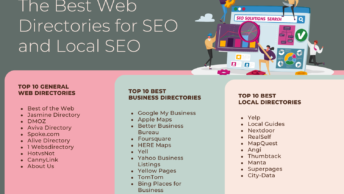
Recently I had a conversation with a software developer I know. He was considering the development of a new mass-market content management system (CMS). Overall he had some good ideas for creating something better than what currently exists. However, the discussions led to a bit of a debate.

You see, he was coming at it from the perspective of a developer — what he thought would be best on the technical side. But I come from a marketing and PR background, where I work very heavily with his intended target market and I’m very experienced in knowing what they use and why they choose to use it. I’m also experienced in actually marketing things to this audience, knowing what gets them to buy. And, like in that case, sometimes what’s technically best isn’t something the target market really wants. Without a strong market, your product launch is doomed to fail.
So today let’s talk about launching new websites and products online, and how you can figure out if a market exists before you sink a lot of time and money in the development stage. It’s time to talk about good old market research.
A Simple Example: E-book Development
As a writer and blogger, e-books are one of my favorite products to release. So let’s use them as an example. For instance, let’s say you’re a Chihuahua lover and you happen to be a dog trainer. You run a blog that more generally appeals to a dog lover audience, but you want to create a product to help monetize that blog, and you want it to focus on your passion. So you decide to write and sell an e-book on training Chihuahuas.
Is it a good idea? Would a market exist for that e-book?
In Search of a Product Market: 3 Steps to Get You Started
Here are three steps you could take through simple online market research to determine if that e-book on training Chihuahuas is really a worthwhile time investment, or if there are better options you might want to pursue.
-

Credit: BigStockPhoto.com Do some keyword research. — Use an online tool like the Adwords keyword tool to give you an idea of how many people are searching for the information or product you plan to provide. When you look up “training Chihuahuas” for example you see that there are a few hundred searches for that phrase each month. The more people that are searching for something, the bigger the potential market probably is. Keep in mind that you won’t get all of those searchers to your own website, and you’ll sell to an even smaller percentage of the visitors you do get. When you look at it that way, 800 searches or so really doesn’t amount to much. Be sure to look up similar phrases too. For example you’ll find that the phrase “Chihuahua training” actually gets about ten times the search volume of your initial phrase. That potential market suddenly got bigger.
- Search for competitors. — Okay. So now you know that people are indeed interested in learning how to train their Chihuahuas specifically — as opposed to just looking for generic dog training advice. Great. But it doesn’t matter if a market exists if that market is already saturated with products filling customers’ needs. Run a basic online search for the phrases and products you’re targeting. See what comes up. Are there already a lot of other e-books (or books, or software packages, or whatever type of product you’re thinking about releasing online)? If not, congratulations! Go fill that market need! If so, that means sites and products with an established presence are likely already getting the traffic you’ll need in order to market your product. Now that doesn’t mean it’s impossible. If you come across plenty of competition, move on to the third step.
- Evaluate the competition. — This part of your research can take the longest. But it’s vital. It doesn’t matter that other products exist if they don’t really fill consumers’ needs. So it’s time to find out what buyers really think of them, and determine if you can bring something new (and better) to the table. Check the creator’s credentials for example. Are they just some dog owner with no actual dog training credentials? If so, your e-book has a better chance of becoming a must-have authority source because you do have those specialized credentials. Also take the time to search for and read feedback from past buyers of competitors’ products. What are they saying? Do they wish other information was included (things you could include in your own product and use as a marketing angle)? Do many buyers say the product or advice didn’t work for them? In that case get yourself a copy and find out why. Just because products exist, don’t assume that buyers are happy with them. If a significantly better product is released, you might indeed rise to the top of that product niche.
One of the worst things you can do when deciding which products to develop is to overestimate your potential market. It’s irresponsible to start a business without conducting basic market research first, and the same goes for product launches. Find out who your market is and what they really want. Only then can you improve your chances of creating a successful product launch.







[…] This post was mentioned on Twitter by Online Marketing New and DIRJournal.com, Blair Wolf. Blair Wolf said: #Journal Product Pre-Launch: How to Know if a Market Even Exists http://bit.ly/aGbm8T […]
Thanks sharing this article about
Product Pre-Launch: How to Know if a Market Even Exists
i would like to know how to find whether there is a market for plant holders. it will be very much thankful if you could help me in this.